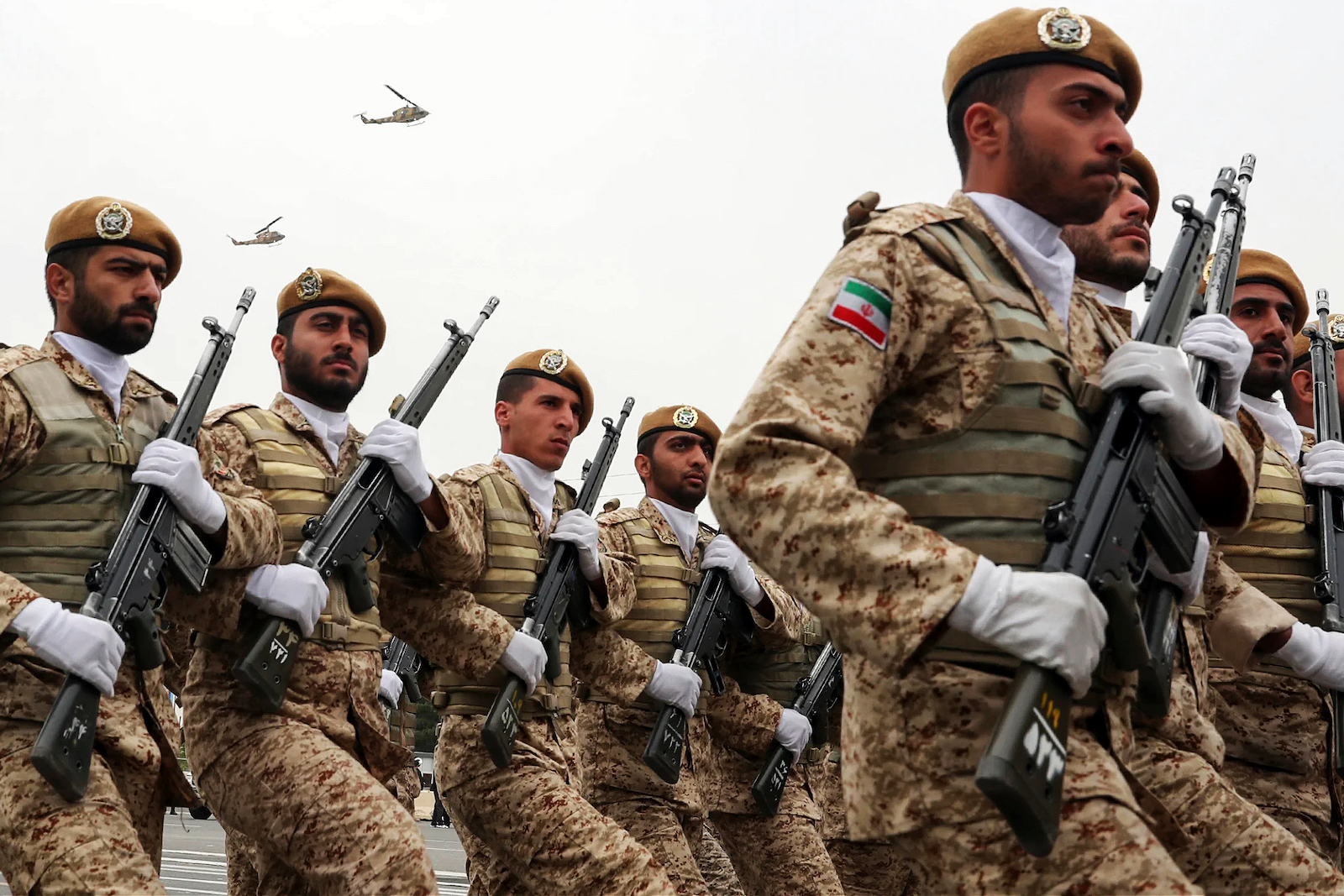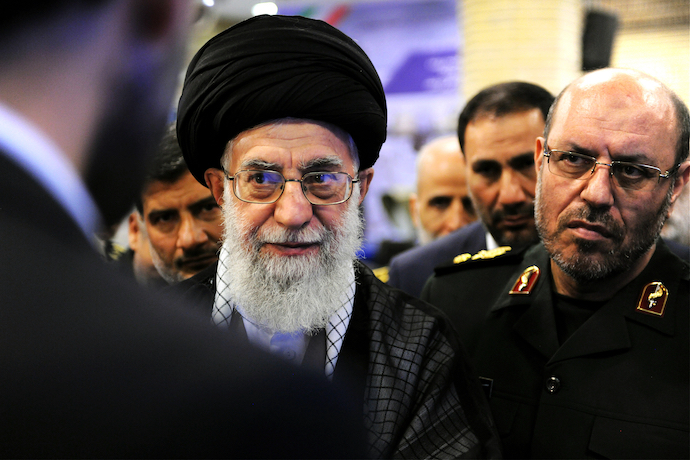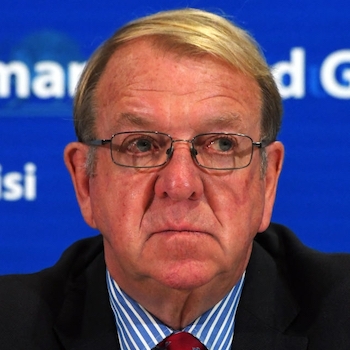
The West’s Imperative to Counter Iran’s Shadow War
John Bolton, the hawkish U.S. National Security Advisor under former President Donald Trump, recently urged President Biden to authorize direct strikes on Iran in response to the deaths of three American soldiers. While his stance may appear extreme, the rationale is rooted in a clear-eyed assessment of Iran’s culpability in orchestrating violence through proxies, such as Hamas’s attack on Israel on October 7, Yemen-based Houthi drone and missile attacks on commercial shipping in the Red Sea, Lebanon-based Hezbollah attacks in Northern Israel, and the Iran-backed militias’ strikes on U.S. forces in Syria and Iraq. The tipping point, according to Bolton, was the killing of three U.S. soldiers based in Jordan by Iranian-supported militants—a breach warranting a direct response. “They crossed one of our red lines,” he declared, “so we must cross one of theirs.”
The Iranian regime’s strategy of proxy warfare serves to diffuse its accountability for regional turmoil. While President Biden has opted for measured counterstrikes in Syria, Yemen, and Iraq, refraining from targeting Iranian soil to avoid escalation, such caution may underestimate the Islamic Revolutionary Guard Corps (IRGC) and the Quds Force’s pivotal role in fomenting conflict through these proxies. Despite the IRGC’s overarching influence and allegiance to Ayatollah Ali Khamenei, the reluctance of the UK and EU to designate the group as terrorists, even as it engineers terror attacks on their territories, remains puzzling.
In 2019, the Trump administration designated the Islamic Revolutionary Guard Corps (IRGC) as a terrorist organization, a decisive action that has not been mirrored by the European Union or the United Kingdom. These regions have hesitated to label the IRGC similarly, despite evidence of the group’s involvement in orchestrating and financing acts of terror within European borders. This reticence persists even as the IRGC employs proxy groups and criminal networks to execute its agenda, effectively bypassing the repercussions of Western economic sanctions.

In a stark demonstration of these tactics, the U.S. Department of State and Treasury have singled out Naji Sharifi Zindashti, an Iranian with a notorious reputation in the narcotics trade, for managing an assassination network at the behest of Iran’s Ministry of Intelligence and Security (MOIS). Allegedly, Zindashti contracted two Canadians, including a member of the Hells Angels, to eliminate two Iranian dissidents residing in Maryland. This operation is not isolated; Zindashti’s criminal syndicate was previously implicated by Turkish intelligence in 2020 for engaging in abductions and assassinations, including the case of Habib Asyud, an Iranian-Swedish national, whose abduction in Turkey led to his execution in Tehran.
According to a U.S. Treasury Department press release: “The MOIS and Iran’s Islamic Revolutionary Guard Corps (IRGC) have long targeted perceived regime opponents in acts of transnational repression outside of Iran, a practice that the regime has accelerated in recent years. A wide range of dissidents, journalists, activists, and former Iranian officials have been targeted for assassination, kidnapping, and hacking operations across numerous countries in the Middle East, Europe, and North America. The regime increasingly relies on organized criminal groups in furtherance of these plots in an attempt to obscure links to the Government of Iran and maintain plausible deniability.”
The United States has placed a bounty of $5 million for information leading to the arrest of Christy Kinahan. Kinahan, better known as Christy ‘the Dapper Don’ Kinahan, stands accused of leading one of the globe’s most formidable narcotics syndicates, operating from Kish Island, an Iranian outpost known as the ‘Pearl of the Persian Gulf.’ The island, a mere 12 miles from the mainland, is not just a haven for laundering immense sums of illicit drug money; it also serves as a covert operational hub for orchestrating assassinations at the direction of Iran’s Ministry of Intelligence and Security and the Islamic Revolutionary Guard Corps. Kish Island is a free-trade zone, known as Iran’s Costa Del Sol and while women have to wear headscarves and traditional dress, the paradise island has a more European feel, with alcohol served in hotels and restaurants and a huge coral beach for snorkeling.
These nefarious alliances have enabled Iran’s theocratic regime to convert organized criminal networks into a potent political tool. Such elements engage in terrorism, circumvent international oversight, and defy sanctions. Their illicit endeavors, spanning from drug trafficking to money laundering and arms dealing, has provided Tehran with a means to finance and supply its proxies like Hezbollah, Hamas, the Houthis, and Iraqi militias. These groups advance Iran’s geopolitical doctrine and sow chaos on a global scale, even as they help divert attention from Iran’s internal crises that threaten to destabilize the ruling order.
The regime’s reach was starkly illustrated last November when it was implicated in the assassination attempt on Dr. Alejo Vidal-Quadras Roca, a notable Spanish politician and former First Vice President of the European Parliament. The fallout from the botched operation, which inflicted severe injuries on Vidal-Quadras Roca, led to multiple arrests. The assailant, reportedly a French national of Tunisian descent, remains unidentified but is also sought for homicide in France. This brazen attack on a prominent critic of Tehran within European borders calls for a reevaluation of the West’s stance towards Iran. It suggests an imperative for the EU and the UK to align with the U.S. in designating the IRGC as a terrorist organization. It posits that only decisive military measures targeting the IRGC and Quds Force infrastructure within Iran can effectively check the regime’s aggression and send an unequivocal message that its current path will be met with a firm response.
